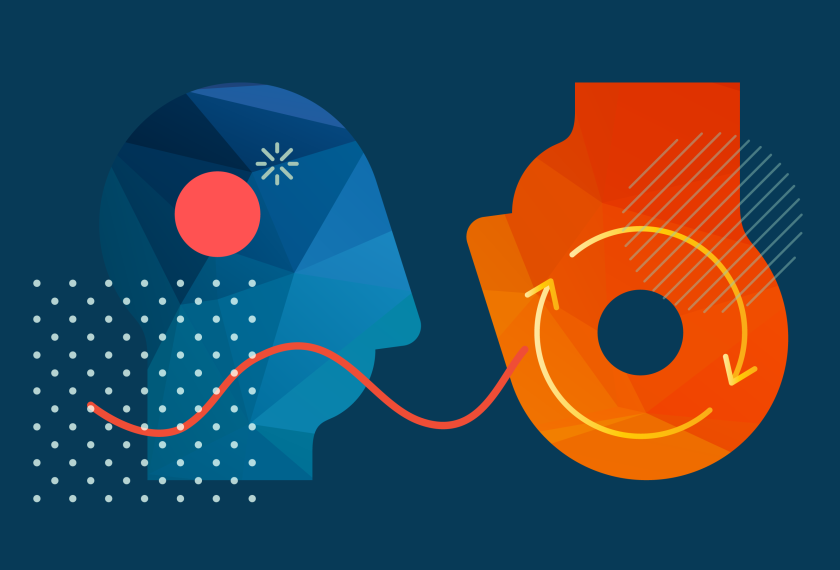The drive to use evidence to inform action in education has an essential problem: the academic community’s almost religious belief that scientific evidence is the only evidence that has legitimacy. We have arrived at the position where other sources of knowledge are not only devalued, they are rarely acknowledged. Scientifically valid knowledge is widely regarded in the education research community as the only knowledge worth having. A draft paper recently presented at a national conference asserted disapprovingly: “Teachers do not use evidence,” referring to the scientific variety.
As an academic who began as a teacher, I disagree. Such statements are not only arrogant, they are inaccurate. Dominant educational practices drawn from scientific research can be both wrong and damaging—witness the long-held but now discredited conclusion that teaching children reading and mathematics before the age of 8 was a poor use of time.
Scientific evidence is not the only source of knowledge nor is it the source of knowledge that always holds high ground in decisionmaking. Two other important kinds of knowledge are what might best be labeled craft knowledge and moral knowledge.
I have never seen a teacher or principal reject a story as legitimate evidence.
Craft knowledge stems from the understanding gathered over time by practitioners, including through stories, ad hoc observations, and intuition. It is the evidence that usually legitimizes professional judgment in our field, in part because scientific knowledge is not available or cannot be generalized to the thousands of different situations educators face daily. Another strength of craft knowledge is its encapsulation in stories, which are memorable and therefore available to guide action in the moment.
I have often seen this evidence ridiculed and dismissed by professors and policymakers. And yet what I consider the most valuable evidence I’ve encountered in my teaching career falls into the craft category. When I taught 1st grade in a poor, rural school in North Carolina in the 1970s, I had a tough little boy named Benjamin for a student. One day he appeared at the door of the classroom crying. “Someone stole my 3 Musketeers bar,” he snuffled.
I was on the verge of seeing this issue only through my own eyes and my own understanding of the action: a missing candy bar. But some instinct made me listen instead.
“My father gave me that 3 Musketeers,” Benjamin said, trying to sum up the meaning of such a rare treat in his young life. To try to match the weight of Benjamin’s emotion, I spoke with the whole class, explaining what the loss of the candy bar really meant to Benjamin. We talked about “hurt” and how “we” had the ability to help Benjamin be happy again. When we returned to class after lunch and play time, the candy bar was back in Benjamin’s cubby.
That lesson was perhaps the most powerful in my teaching career, and I’ve shared it many times with my students who are aspiring teachers. If you don’t understand a problem from the student’s point of view, you are not likely to be able to solve it.
Knowledge from the real world of teaching has high influence. When teachers tell stories like Benjamin’s to one another, they listen. What administrators bill as scientific knowledge, on the other hand, is often disappointing.
Take my colleague at that school in North Carolina, Mrs. Wyatt. She was still using phonics to teach reading when I arrived at the school, but then a mandate came down from administrators: “Use the whole-language approach.”
So Mrs. Wyatt taped everything she needed for her phonics lessons on the inside of the double doors that closed off her closet. The doors were open when she taught reading, closed when she had administrative visitors. Eventually, of course, scientific research vindicated Mrs. Wyatt’s approach.
When such wisdom is raised up, research colleagues react as if their world has been turned upside down and their credibility challenged. They are in the business not of trying to investigate craft knowledge but to replace it.
I have never seen a teacher or principal reject a story as legitimate evidence. That doesn’t mean the stories are taken at face value. Counter-narratives often are offered because we should question how best to interpret evidence. But it is not, as routinely suggested, a matter of converting school people to the use of scientific knowledge. It is coming to recognize that scientific evidence does not and should not carry the greatest weight in many school situations.
Another type of knowledge, moral evidence, is rarely even acknowledged by the education research community. While ethical and equity considerations increasingly shape our profession, they are often conspicuous by their absence from researchers’ understanding of decisionmaking in classrooms and schools.
If educators decide, in relation to disciplinary policy, that it is morally indefensible to keep children after school several days a week, their reasoning seems invisible to researchers. Ethical principles as knowledge are not allotted a seat at the evidentiary table even when they constitute the first and the ultimate test of a proposed course of action for teachers, principals, students, and parents.
To move forward, we need to see schooling through the eyes of others. When we do not, reform will fail.
The dominant question among researchers seems to have become: How do we get school people to use scientific evidence? This is, of course, a very important question. But it is not the right question with which to start.
The most important question is: How do we begin to acknowledge and use valuable evidence from all sources of knowledge to assist in the improvement of schools?





